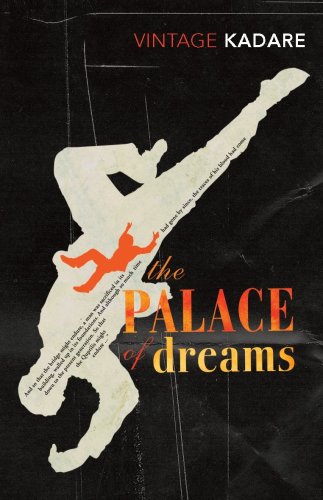A few months ago I was about to fly across the Atlantic Ocean and decided I might need a book to keep me distracted during the long hours locked in the plane. I randomly picked The Palace of Dreams, previously knowing nothing about it or it's author. I ended up sleeping through the flight and the book was postponed until recently when I travelled to London (which, by the way, is now one of my favourite places on Earth) and decided to bring it with me.
The book follows Mark-Alem, a member of the Quprilis, a very important family in an Empire under a totalitarian regime, who starts working in the Tabir Sarrail. Known as the Palace of Dreams, the Tabir Sarrail is a kind of government department that catalogues and interprets all the dreams that the people report as the dreams sometimes include prophecies. As Mark-Alem rises in the Palace's hierarchy, he learns about its purpose, the most important one being the choice and interpretation of the Master-Dream, one which has consequences to the state or its rulers and for that is presented directly to the state's Sovereign, the Sultan.
The story is always told from Mark-Alem's point of view, and the reader learns everything as he does, understanding the event as they unravel around him. In the beginning, the author seems to concentrate in making the reader understand Mark-Alem, his thoughts, his habits, his insecurities, his family and his work. But after a while, the plot thickens as it focuses on the relationships between the Quprili family and the Tabir Sarrail, as Mark-Alem himself starts to understand what happens inside the Palace of Dreams, building up to the moment where he understands how far the rulers will go acting solely on what has been interpreted in a dream. Kadare still keeps a surprise to the very end of the book, which you may predict if you were paying attention to the details all the way from the very beginning.
It was very interesting to read a story that although being obviously about a totalitarian regime that even oversees people's future acts, is different from the usual for keeping within one character's point of view and focusing on his specific story, having no reference to heroes that fight it, to apocalyptic situations or even to the fall of the sovereign's regime as could be expected. Kadare manages to convey how one feels living under the control, being part of the very "machine" that keeps said control and still playing your part as if there was no other chance or there was no conscience of consequence. A notion that reminds me of surviving rather than living, that shows how the true, absolute control can be achieved. The text itself is easy to read and the story develops at just the right speed, being neither too slow nor overwhelmingly rushed to the end.
The Palace of Dreams wasn't one of my favourite books and I'm not about to read all that Ismail Kadare wrote but I did like it and I'd recommend it to people that enjoy stories based on dystopian dictatorships as Orwell's 1984 but don't mind a bit of fantasy as brought here by the prophetic dreams.

This sounds like a promising premise. It reminds me a bit of Minority Report, mixed with 1984. I'm interested in reading it. :)
ReplyDelete